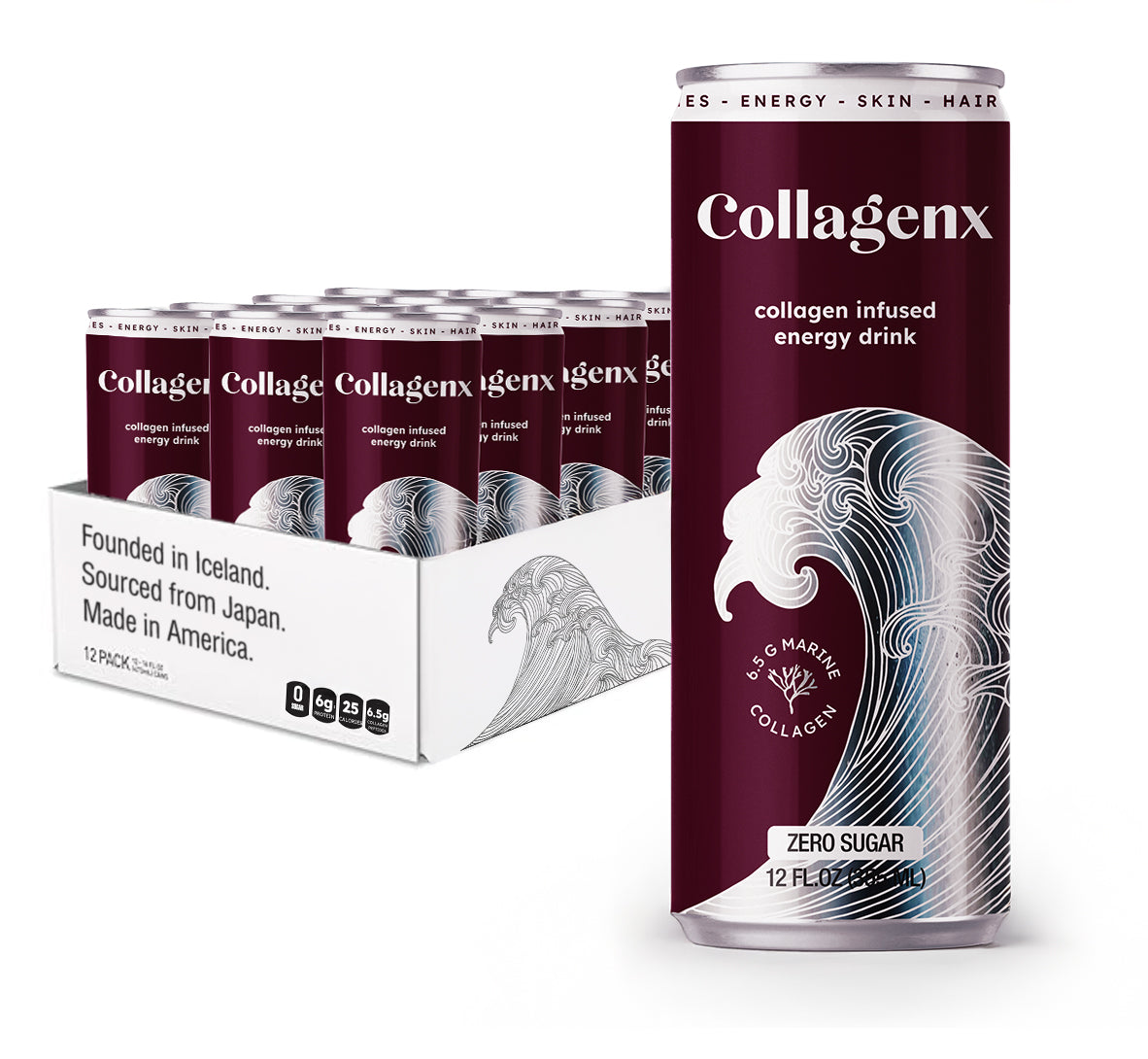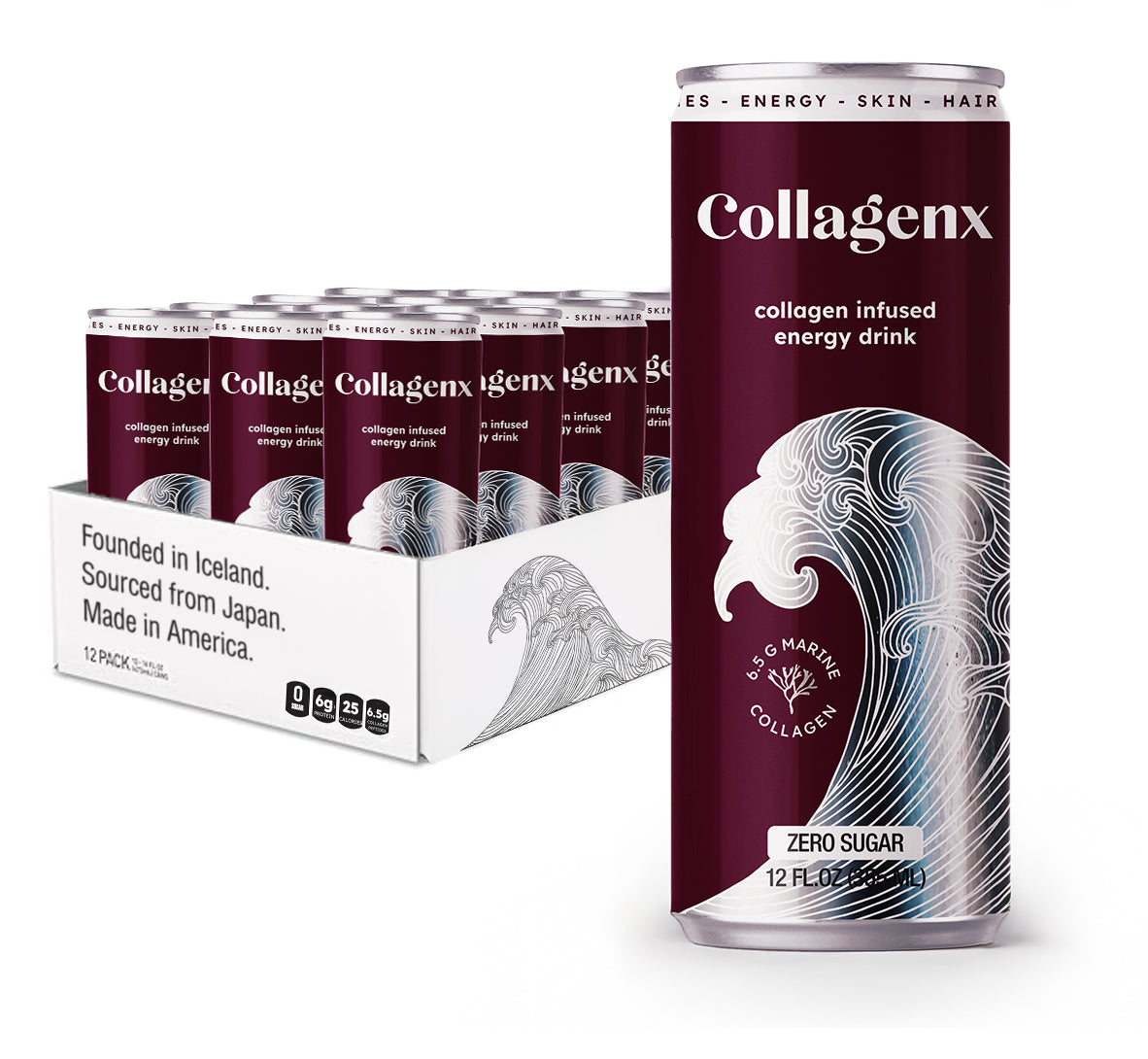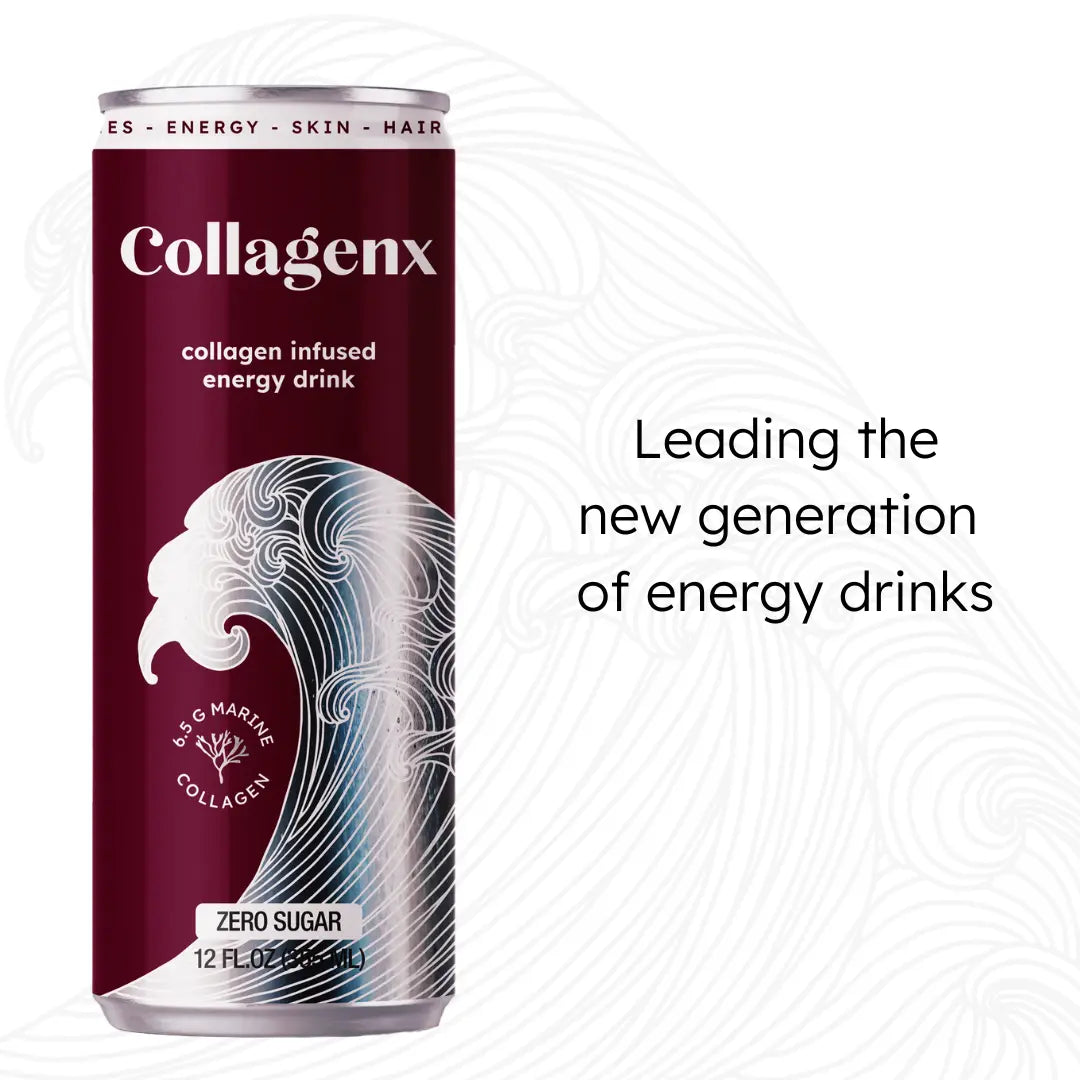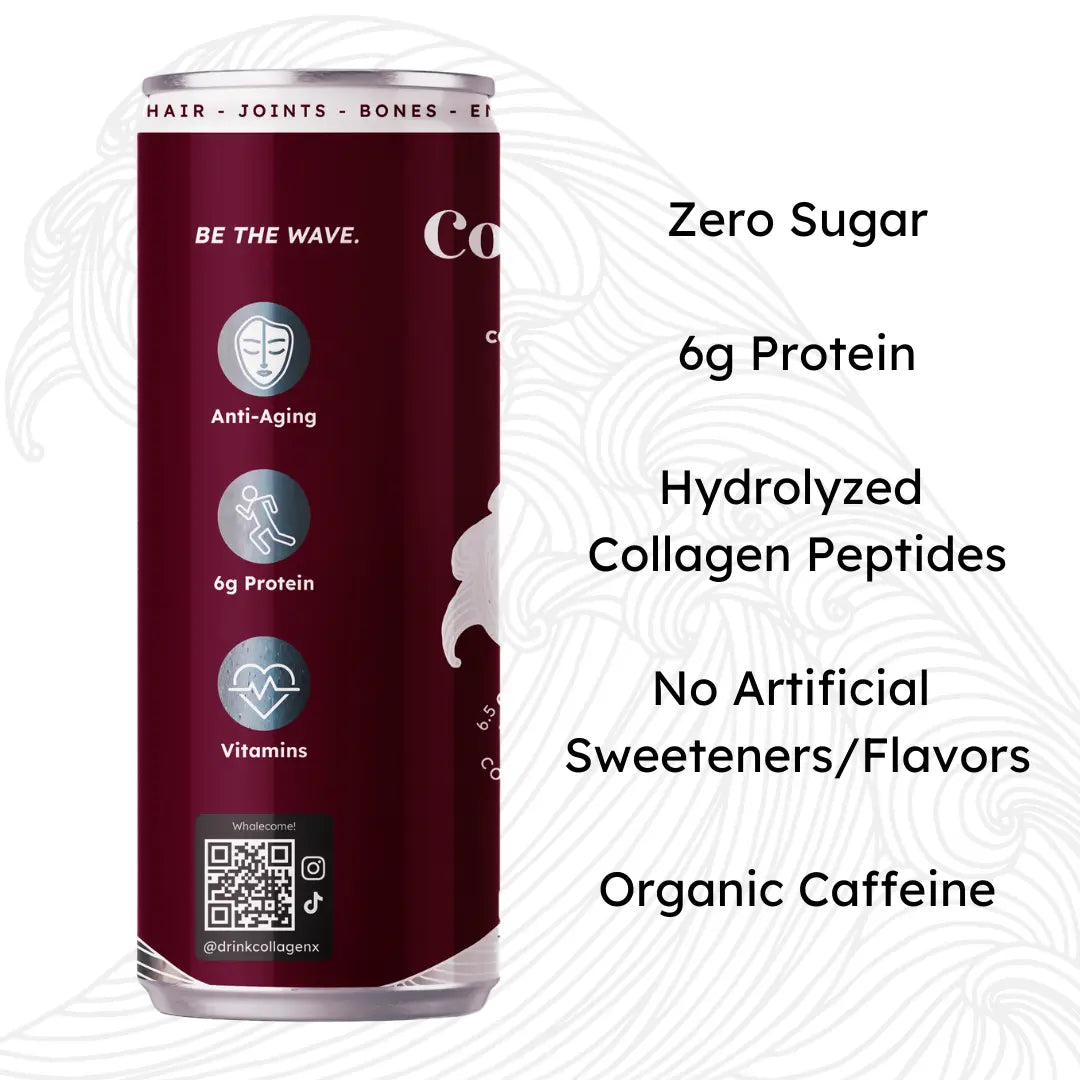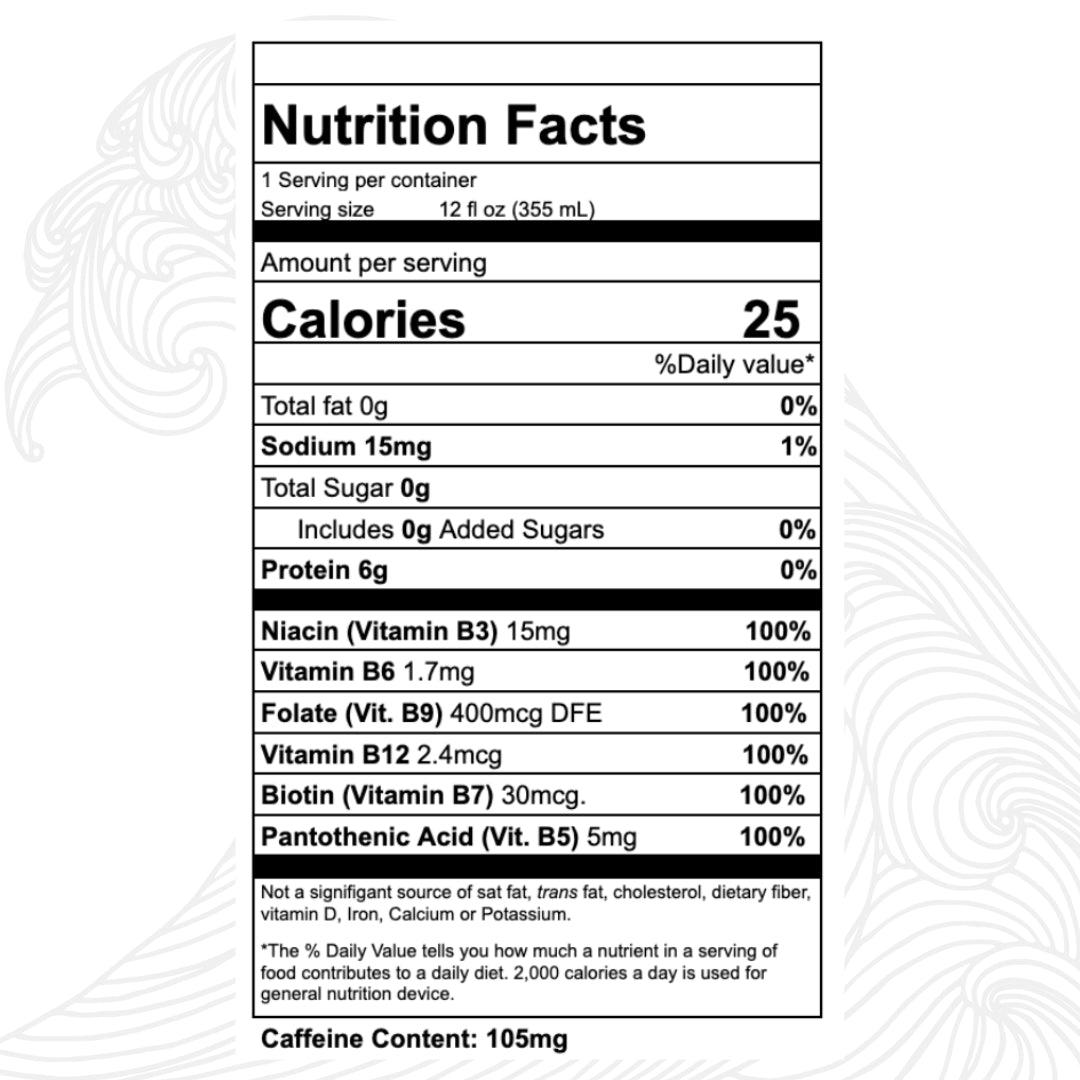
Fasting and Collagen: Will Supplementing with Collagen Break Your Fast?
By Collagenx Research Team ┃ Feb 17th, 2025 ┃5 min read┃
Unveiling the Truth: Can Collagen Consumption Break Your Fasting Routine?
The short answer is quite simple, in that any consumption of calories during a fast means you technically have broken that fast. But this isn't as simple as a yes or no. This is quite a complex process, but we lay it all out for you and how you can still consume collagen in a safer way. So as not to break your fast while still getting in that all important collagen!
Understanding Intermittent Fasting

Intermittent fasting (IF) has gained immense popularity in recent years as a lifestyle choice for those looking to improve their health and manage their weight. At its core, intermittent fasting involves cycling between periods of eating and fasting. This approach is not just a diet; it is a pattern of eating that can lead to various physiological changes in the body. The methods vary widely, from the 16/8 method, where individuals fast for 16 hours and eat within an 8-hour window, to the 5:2 diet, which involves eating normally for five days and significantly reducing calorie intake for two non-consecutive days.
The allure of intermittent fasting lies in its potential health benefits. Studies have shown that it can enhance metabolic health, improve insulin sensitivity, and promote cellular repair processes. By allowing the body to enter a fasting state, it encourages the production of human growth hormone (HGH), which plays a vital role in muscle growth and fat loss. Additionally, fasting can trigger autophagy, a process where the body cleans out damaged cells and regenerates new ones, potentially leading to longevity and improved health markers.
However, while intermittent fasting can be a potent tool for many, it can also present challenges. Some individuals may experience hunger pangs, fatigue, or irritability during fasting periods. This is where the discussion around supplementation, particularly with collagen, can become relevant. As people seek to optimize their fasting experience, understanding how various supplements interact with the fasting state is crucial for achieving desired health outcomes.
What is Collagen and Its Benefits?
Collagen is a protein that serves as a fundamental building block for various tissues in the body, including skin, bones, tendons, and ligaments. It makes up approximately 30% of the body's total protein content and is essential for maintaining the structural integrity and strength of these tissues. There are several types of collagen, but the most abundant in the human body are types I, II, and III, each serving different functions in various tissues.
The benefits of collagen consumption have been widely studied and are often touted in health and wellness circles. One of the most significant advantages is its impact on skin health. Collagen helps to maintain skin elasticity and hydration, potentially reducing the appearance of wrinkles and promoting a more youthful complexion. Furthermore, as collagen levels naturally decline with age, supplementing with collagen can help to counteract these effects, making it a popular choice for those seeking to improve their aesthetic appearance.
Apart from skin benefits, collagen is also known for its positive effects on joint health. It can help to alleviate joint pain and improve mobility, making it particularly beneficial for athletes or those suffering from conditions like osteoarthritis. Additionally, collagen supports gut health by strengthening the intestinal walls, which can aid in digestion and prevent leaky gut syndrome. These multifaceted benefits make collagen a compelling supplement for individuals looking to enhance their overall health and well-being.
Want to know more? Visit our store
Collagen Consumption During Fasting

When it comes to incorporating collagen into a fasting routine, it is essential to understand how it interacts with the metabolic processes that occur during fasting. Traditional fasting practices often emphasize the avoidance of all caloric intake, which raises the question: does consuming collagen disrupt the fasting state? The answer is nuanced and depends on the individual's goals and the specific type of fasting they are following.
For those practicing intermittent fasting with the goal of weight loss or metabolic health, it is generally understood that consuming any caloric substance, including collagen, can break the fast. This is because collagen, although often considered a "healthier" protein source, still contains calories that can stimulate insulin release and metabolic responses. Therefore, if the primary aim of fasting is to achieve a state of metabolic ketosis or autophagy, it may be best to avoid collagen during fasting periods.
However, for individuals focused on the health benefits of fasting rather than strictly adhering to caloric restrictions, incorporating collagen could prove beneficial. For example, if collagen is consumed in moderation during a fasting window, it might provide additional support for skin and joint health without significantly derailing the metabolic benefits of fasting. Ultimately, the choice to consume collagen while fasting should align with personal health goals and how one's body responds to different fasting practices.
Impact of Collagen on Fasting Results

The impact of collagen consumption on fasting results is a topic of ongoing research and debate. While some individuals find that supplementing with collagen does not hinder their fasting results, others may experience different outcomes based on their unique metabolic responses. One significant area of concern is how collagen affects insulin levels and the body's ability to remain in a fasted state.
Research indicates that protein consumption can stimulate insulin secretion, albeit to a lesser extent than carbohydrates. Since collagen is a protein, its consumption during fasting may lead to a mild increase in insulin levels, potentially interrupting some of the benefits associated with fasting. However, this effect may vary depending on the amount consumed and individual metabolic differences. For those who are more focused on maintaining muscle mass while fasting, collagen may provide a valuable source of amino acids without significantly impacting insulin levels.
On the other hand, some studies suggest that moderate collagen supplementation can enhance the positive effects of fasting. For example, collagen can aid in muscle preservation, which is particularly important for those engaging in strength training or high-intensity workouts during fasting periods. By providing essential amino acids, collagen may support recovery and overall performance, allowing individuals to maximize their fasting benefits while still maintaining muscle integrity.
Types of Collagen Supplements
Collagen supplements come in various forms, each with its unique characteristics and benefits. Some common types you may find are as follows:
- Hydrolyzed collagen (collagen peptides)
- Collagen powder
- Gelatin
- Liquid collagen
- Undenatured collagen (collagen that hasn't been broken down by heat or enzymes)
- Multi-collagen supplements (collagen supplements containing various types of collagen)
Hydrolyzed collagen is a popular choice because it is broken down into smaller peptides, making it easier for the body to absorb. This form is often included in shakes, smoothies, or mixed with water, providing a convenient way to incorporate collagen into daily routines.
Gelatin, another form of collagen, is derived from animal collagen and is often used in cooking and baking. It can be added to broths or used to make gummies and desserts. While gelatin also offers benefits for skin and joint health, it is less bioavailable than hydrolyzed collagen, meaning it may not be absorbed as efficiently by the body. For those seeking maximum effectiveness, hydrolyzed collagen is typically the preferred option.
Liquid collagen is gaining popularity for its ease of use and convenience. This form often comes in pre-packaged servings and can be consumed directly or mixed into beverages. While liquid collagen may offer quick absorption, it is essential to select high-quality products to ensure sufficient collagen content. Each type of collagen supplement has its unique advantages, and the best choice will depend on individual preferences, lifestyle, and specific health goals.
Incorporating Collagen into Your Fasting Routine
Integrating collagen into a fasting routine can be a straightforward process, but it requires careful consideration of timing and dosage. For individuals who choose to consume collagen during their fasting windows, timing is critical. It may be beneficial to take collagen at the beginning of the eating window or during a designated meal to maximize its absorption and potential benefits without significantly impacting fasting results.
If one opts to consume collagen during the fasting period, moderation is key. A small serving of hydrolyzed collagen, typically around 10 grams, may provide health benefits without overwhelming the body's fasting processes. Additionally, pairing collagen with other nutrient-dense foods during eating windows can enhance its effectiveness, as the body can utilize the amino acids from collagen in conjunction with other macronutrients.
For those looking to avoid any caloric intake during fasting, collagen can still play a role in pre- and post-fasting strategies. Consuming collagen-rich foods, such as bone broth, before the fasting window begins can provide a nourishing foundation. Similarly, breaking a fast with collagen-infused meals can support recovery and overall health. Ultimately, the incorporation of collagen into a fasting routine should be tailored to individual preferences and health goals.
Want to know more? Visit our store
Research Studies on Collagen and Fasting

The intersection of collagen supplementation and fasting has garnered interest in the scientific community, leading to various studies exploring their combined effects. One area of investigation focuses on how collagen impacts metabolic health during fasting. Initial findings suggest that collagen may support muscle preservation and recovery, making it an appealing option for individuals who engage in physical activity while fasting.
A study published in the Journal of Clinical Endocrinology & Metabolism examined the effects of collagen peptides on muscle mass retention during caloric restriction. The results indicated that participants who supplemented with collagen experienced better preservation of lean muscle compared to those who did not. This is particularly relevant for individuals practicing intermittent fasting who wish to maintain muscle mass while losing fat.
Additionally, research has explored the benefits of collagen for skin health, which can be especially relevant for those undergoing fasting. A study published in Skin Pharmacology and Physiology found that collagen supplementation improved skin elasticity and hydration in older adults. These findings suggest that incorporating collagen during fasting may not only support metabolic health but also enhance skin appearance and health, making it a multifaceted supplement for overall well-being.
Best Practices for Consuming Collagen While Fasting
For individuals interested in reaping the benefits of collagen while adhering to a fasting routine, certain best practices can enhance the experience. First and foremost, selecting high-quality collagen supplements is essential. Look for products that are sourced from reputable companies.
It's also crucial to monitor serving sizes. While collagen can be beneficial, consuming excessive amounts may have diminishing returns or interfere with fasting benefits. A daily dose of 5 to 15 grams is often sufficient for most individuals aiming to support skin and joint health. Additionally, consider the timing of collagen consumption in relation to other meals. Taking collagen at the beginning of the eating window may provide optimal absorption and synergistic effects with other nutrients.
Lastly, staying attuned to your body's responses is vital. Everyone's metabolism and fasting goals differ, so maintaining a journal to track how collagen affects your fasting experience can provide valuable insights. This practice can help you determine if collagen supplementation aligns with your personal health objectives, allowing for adjustments as needed to ensure optimal results.
Expert Opinions on Collagen During Fasting

The opinions of health professionals regarding collagen consumption during fasting vary, reflecting the nuanced nature of this topic. Some experts advocate for the inclusion of collagen, especially for individuals who are physically active and seek muscle preservation. Nutritionists often emphasize that the benefits of collagen for skin and joint health can enhance the overall fasting experience, particularly for those who may experience fatigue or joint discomfort during calorie restriction.
Conversely, some fasting purists argue that any caloric intake, including collagen, can disrupt the fasting state and its associated benefits. They recommend adhering strictly to water, black coffee, or herbal teas during fasting periods to maximize autophagy and metabolic health. This perspective underscores the importance of aligning fasting practices with personal health goals, as not everyone may experience the same outcomes from collagen consumption.
Ultimately, consulting with a healthcare professional or nutritionist can provide tailored guidance on whether collagen supplementation is appropriate for your fasting routine. Their insights can help navigate the complexities of fasting and supplementation, allowing individuals to make informed decisions that best align with their health aspirations.
Conclusion and Final Thoughts
The relationship between collagen consumption and fasting is complex and multifaceted, with potential benefits and considerations for individuals on various fasting regimens. While collagen can provide valuable support for skin, joint health, and muscle preservation, it is essential to consider how it fits into your specific fasting goals. For those focused on metabolic health and autophagy, avoiding caloric intake during fasting periods may be optimal. Still, moderate collagen supplementation may enhance the fasting experience for others, particularly those engaged in physical activity.
As research continues to explore the effects of collagen on fasting and overall health, individuals are encouraged to stay informed and attuned to their bodies. Personal experimentation, under the guidance of healthcare professionals, can lead to a better understanding of how collagen fits into a fasting routine. By balancing the benefits of collagen with the goals of fasting, individuals can create a comprehensive health regimen that aligns with their aspirations for wellness and vitality.
does collagen break a fast does collagen break a fast does collagen break a fast does collagen break a fast does collagen break a fast does collagen break a fast does collagen break a fast does collagen break a fast does collagen break a fast does collagen break a fast does collagen break a fast does collagen break a fast does collagen break a fast does collagen break a fast does collagen break a fast does collagen break a fast does collagen break a fast does collagen break a fast does collagen break a fast does collagen break a fast does collagen break a fast does collagen break a fast does collagen break a fast does collagen break a fast does collagen break a fast does collagen break a fast does collagen break a fast does collagen break a fast does collagen break a fast does collagen break a fast does collagen break a fast does collagen break a fast does collagen break a fast does collagen break a fast does collagen break a fast does collagen break a fast does collagen break a fast does collagen break a fast does collagen break a fast does collagen break a fast does collagen break a fast does collagen break a fast does collagen break a fast does collagen break a fast does collagen break a fast does collagen break a fast does collagen break a fast does collagen break a fast does collagen break a fast does collagen break a fast does collagen break a fast does collagen break a fast does collagen break a fast does collagen break a fast does collagen break a fast does collagen break a fast does collagen break a fast does collagen break a fast does collagen break a fast does collagen break a fast does collagen break a fast does collagen break a fast does collagen break a fast does collagen break a fast does collagen break a fast does collagen break a fast does collagen break a fast does collagen break a fast does collagen break a fast does collagen break a fast does collagen break a fast does collagen break a fast does collagen break a fast does collagen break a fast does collagen break a fast does collagen break a fast does collagen break a fast does collagen break a fast does collagen break a fast does collagen break a fast does collagen break a fast does collagen break a fast does collagen break a fast does collagen break a fast does collagen break a fast


